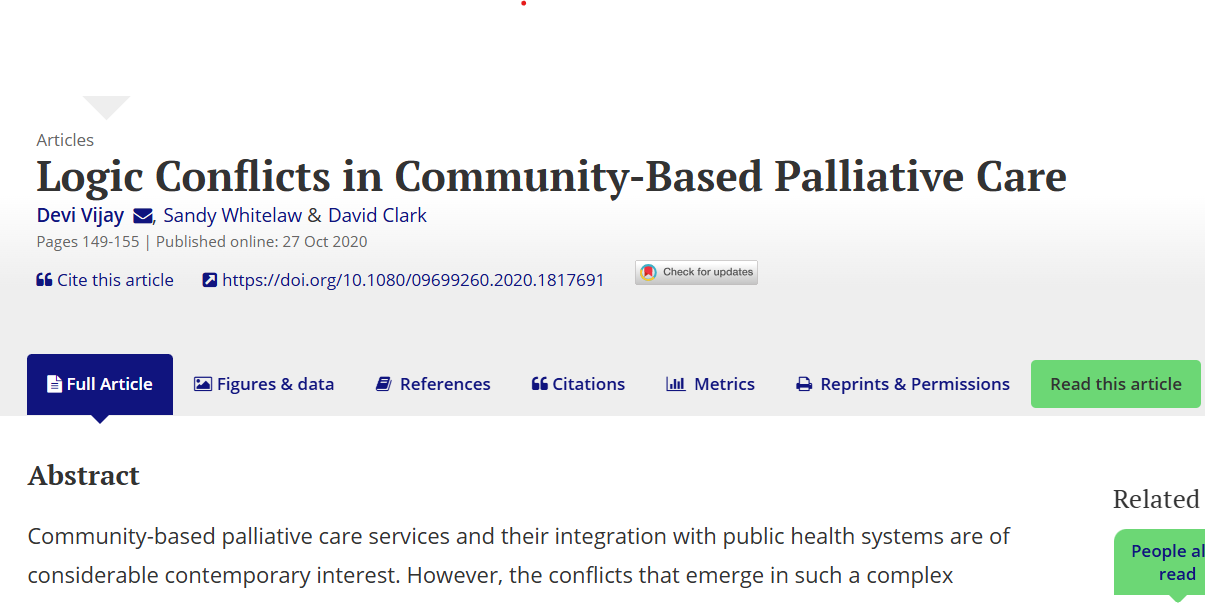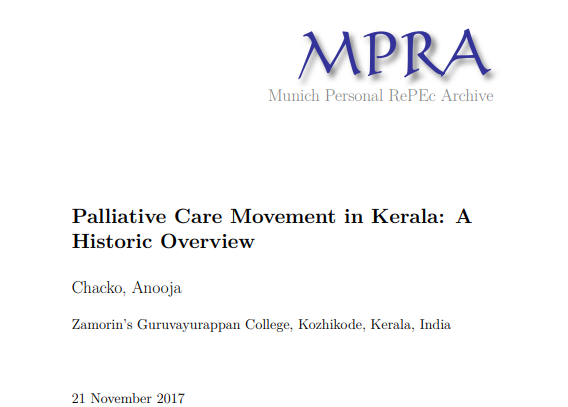Logic Conflicts in Community-Based Palliative Care
The paper "Logic Conflicts in Community-Based Palliative Care" examines the challenges and opportunities within community-based palliative care systems, using Kerala, India, as a case study. Kerala's model, recognized for its emphasis on community ownership, total care, and integration with public health systems, serves as a critical lens to explore organizational conflicts. The study identifies four central "logic conflicts" in the field of palliative care: professional versus community logics, centralized versus decentralized governance, generalist versus specialist care logics, and charity versus rights-based logics. These conflicts arise due to diverse interests and power dynamics among stakeholders, including medical professionals, state agencies, and community volunteers, influencing decision-making and coordination.
The study employs an inductive qualitative methodology, drawing from fieldwork conducted across eight palliative care clinics in Kerala, including prominent district-level coalitions such as the Malappuram Initiative in Palliative Care (MIP). These coalitions, comprising community organizations and state agencies, play a pivotal role in facilitating resource-sharing, best practices, and stakeholder coordination. Data analysis highlights tensions between professional expertise and community-driven caregiving practices, with professionals emphasizing competence and standardization, while community actors value autonomy and organic participation. Similarly, conflicts emerge in governance, with some advocating centralized oversight for accountability and quality, while others argue for decentralized, context-sensitive practices responsive to local needs.
Another key conflict lies in balancing generalist and specialist care logics. While specialization is seen as a way to attract and retain medical professionals, it risks increasing costs and undermining the sustainability of resource-constrained systems. Additionally, the shift from charity-based to rights-based care frameworks is explored, emphasizing the need for palliative care to be recognized as a human right rather than a charitable service. However, deeply ingrained attitudes and paternalistic approaches often hinder this transition.
To manage these conflicts, the study identifies two mechanisms: forming coalitions and fostering plurality. Coalitions like the Malappuram Initiative in Palliative Care (MIP) enable collaboration among community organizations and state agencies to optimize resources and ensure coordinated care. Fostering plurality allows diverse actors to coexist and respond flexibly to patient needs, reflecting the essence of community-based care. These strategies underscore the importance of participatory, deliberative spaces for managing tensions without diminishing the core principles of such models.
The study concludes by situating Kerala’s palliative care model within broader public health discourse, challenging the dominance of Global North-centric frameworks. It highlights the transformative potential of community engagement, not merely as a complement to professional healthcare but as a foundation for equitable and sustainable care systems. The findings call for greater empirical attention to community-driven approaches in low-resource settings, offering insights for rethinking public health palliative care globally.




Comments
Post a Comment